Postnatal Acupuncture Support
Pregnancy and childbirth are seen as significant events that can deplete a woman's Jing or essence. This is because the process of creating and nurturing a new life places a considerable demand on the mother's body and energy reserves.
Aging is also considered a natural process of Jing depletion, which is why preserving Jing is often associated with maintaining overall health and longevity.
After giving birth, it is believed that the mother needs to focus on replenishing her Jing, along with other vital substances like blood and Qi.
Adequate rest and a nutritious diet are emphasised to support the postpartum recovery process. In TCM, the postpartum period is considered a crucial time for a woman to rebuild her strength and restore balance in her body.
Postnatal acupuncture is often recommended to support the mother's recovery. Acupuncture is believed to help balance the flow of Qi and blood in the body, promoting overall well-being. By nourishing the mother's Qi, it is thought to indirectly benefit the baby, as the baby draws on the mother's energy for nourishment.
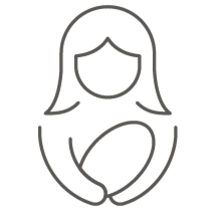
Dealing With The Baby Blues...
The journey to welcoming a little one into the world is amazing. At times may feel a little over whelming, you may feel anxious, tearful, or low mood this is often referred to as ‘Baby Blues’. It is thought that baby blues are maybe caused by hormonal changes after giving birth.
If your symptoms persist, please speak to your GP for advice.
From a Chinese medicine viewpoint, the term "blood" refers to a vital substance that nourishes and moistens the body. It is considered distinct from the Western medical understanding of blood, as TCM views blood in a more holistic sense, encompassing not only the physiological but also the energetic aspects.
Post Natal Blood Deficiancy Issues
After giving birth, women are thought to be particularly prone to blood deficiency. This is because the process of pregnancy and childbirth can deplete the body's resources, leading to imbalances in Qi and blood. In TCM, the heart and the liver are seen as vital organs associated with blood and play a role in mental and emotional well-being.
1. Heart Blood Deficiency: The heart, in TCM, is considered the residence of the mind. If there is deficiency in the heart blood, it is believed to affect the mind, leading to symptoms such as depression, anxiety, disturbed sleep, palpitations, and fatigue.
2. Liver Blood Deficiency: The liver is associated with the storage and regulation of blood. When there is deficiency in liver blood, it may contribute to a range of symptoms, including emotional imbalances and disturbances.
Postnatal depression, according to TCM, can be attributed to these imbalances in heart or liver blood. The idea is that nourishing and replenishing blood through proper nutrition, acupuncture, and lifestyle practices can help restore balance and alleviate symptoms.
It's important to note that TCM operates on a different paradigm from Western medicine, and its understanding of health and disease is based on concepts like Qi, Yin and Yang, and the Five Elements.
Who can benefit from acupuncture for postnatal depression?
Acupuncture can help and support you if you are struggling with baby blues, anxiety, or postnatal depression. It can help dads too if you are struggling with postnatal anxiety, depression or feeling overwhelmed.
How does acupuncture for postnatal anxiety and depression work?
Acupuncture points carefully selected on the body address any underlying unbalances, nourish blood and Yin and calm the mind / Shen. From a western medicine perspective acupuncture works by dampening down the sympathetic nervous system your body fight or flight response and encourages the parasympathetic to take back control.
Acupuncture can work well alongside western medicine treatments and talking therapies.
Acupuncture can help and support breast feeding
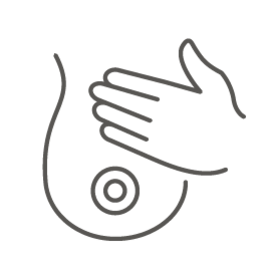
Breast Milk not flowing
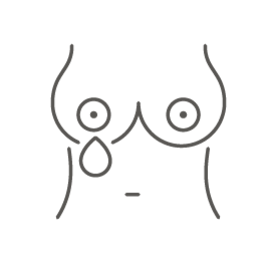
Increasing milk supply
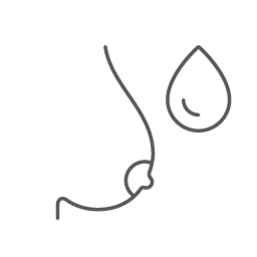
Engorgement
In traditional Chinese medicine (TCM), the postpartum period, especially breastfeeding, is considered a crucial time for a woman's health. Childbirth is viewed as a process that can significantly deplete a mother's Qi (vital energy) and blood. Qi and blood are essential for the production and flow of breast milk. If there is an imbalance or deficiency in Qi and blood, it can affect the ability of the body to transform and express breast milk.
Insufficient lactation or difficulty with milk flow may be attributed to several TCM factors:
1. Qi and Blood Deficiency: The process of childbirth can deplete the mother's vital energy and blood. If there is not enough Qi and blood, the body may struggle to produce an adequate supply of breast milk.
2. Stagnation of Qi: Stagnation or obstruction of Qi in the breast may hinder the flow of milk. This stagnation can be caused by various factors, including emotional stress, improper diet, or lack of proper postpartum care..
Acupuncture is one of the modalities used in TCM to address these imbalances and promote lactation. Acupuncture points are selected to tonify and strengthen Qi and blood, supporting the body's ability to produce and express breast milk. Additionally, specific points may be chosen to move stagnation or obstruction in the breast.
Acupuncture is believed to work by regulating the flow of Qi and blood, promoting overall balance in the body. It is often used as part of a comprehensive approach to postpartum care, which may also include herbal remedies, dietary recommendations, and lifestyle advice.

If Qi is flourishing, milk is flourishing.
If Qi is depleted Milk is depleted.
- Fu Qing Zhu



